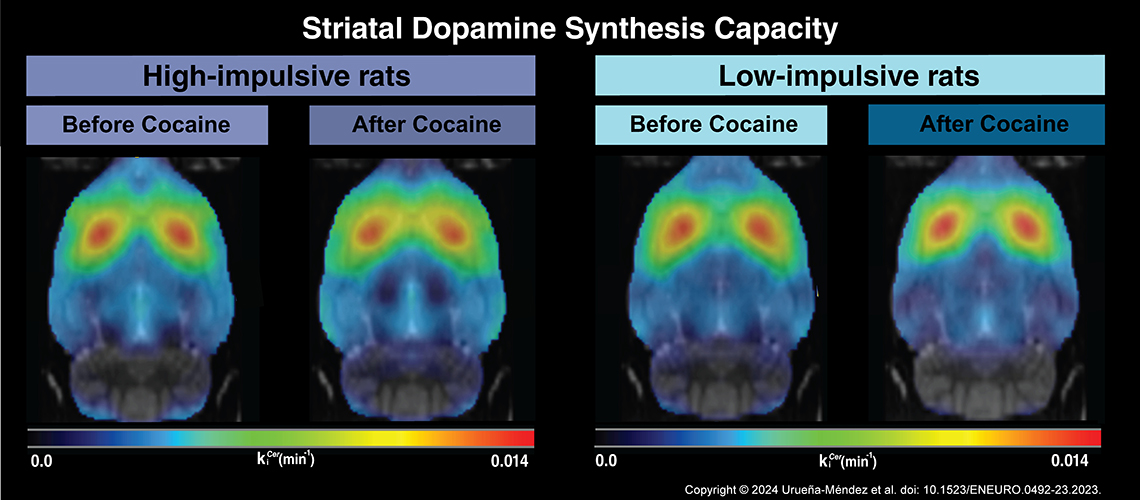Follow us on Google News (click on ☆)
A team from the University of Geneva (UNIGE) has explored the complex interaction between personality traits and brain chemistry. They specifically looked at the influence of impulsivity and dopamine production, commonly referred to as the "happiness hormone", on the risk of cocaine abuse. These results, published in eNeuro, provide new keys to understanding vulnerability to drug abuse. They could lead to the development of more targeted interventions for people at risk.

When a person consumes an addictive drug, their dopamine release increases, creating a feeling of euphoria. With repeated consumption, this dopamine release decreases, potentially increasing the person's consumption to regain that state. This mechanism varies from one individual to another: some show a greater propensity to consume drugs than others. However, the reasons for these differences are not known.
Cocaine does not affect the capacity to produce dopamine
In a recent study, a UNIGE team explored the complex interaction between different impulsive behaviors, dopamine production, and drug consumption, particularly cocaine. Does an impulsive personality predispose towards drug abuse? Do they produce more or less dopamine? To find out, the scientists studied two groups of rats, one composed of highly impulsive individuals and the other of less impulsive individuals. These animals were trained to self-administer cocaine at a dose that triggers dopaminergic neuroadaptations, without harming their health.
The scientists first trained the animals in a gambler's task aimed at measuring two impulsive behaviors: impulsive action - the inability to control automatic actions - and risky decision-making - acceptance of greater risk in decision-making. The scientists then measured the level of dopamine production using a non-invasive neuroimaging technique, before and after cocaine intake, in both groups of rats. The team found that impulsive actions, but not risky decision-making, predicted a higher number of cocaine injections and faster consumption.

Index of dopamine synthesis capacity, in highly and less impulsive rats before and after repeated self-administration of cocaine.
© 2024 Urueña-Méndez et al.
"However, we observed that there were no differences in the ability to produce dopamine between highly impulsive animals and less impulsive ones. In other words, impulsivity and vulnerability to cocaine abuse would not be linked to dopamine production, but to mechanisms controlling its release," explains Ginna Paola Urueña-Méndez, a doctoral student at the Department of Psychiatry and the Department of Basic Neurosciences of the Faculty of Medicine of UNIGE, and first author of the study.
The team then assessed repeated cocaine consumption and its impact on dopamine levels in both groups of rodents. "So far, the idea that regular cocaine consumption could reduce the capacity to produce dopamine was accepted. Our findings contradict this hypothesis since both groups of rats maintained the same capacity to produce dopamine, despite chronic consumption," explains Nathalie Ginovart, associate professor at the Department of Psychiatry and the Department of Basic Neurosciences of the Faculty of Medicine of UNIGE, who led this research.
Towards identifying other mechanisms
These findings suggest that dopamine production is probably not the main driver of impulsivity or vulnerability to cocaine consumption. They also contradict the hypothesis that cocaine usage could directly reduce the capacity to produce dopamine.
This research represents a significant advancement in addiction studies. It opens the door to exploring other mechanisms that may explain vulnerability to drugs. "This variation in vulnerability could be related to the relative reactivity of dopaminergic neurons, so that certain stimuli, including drugs, are more salient in more impulsive animals," the researchers believe. The team is currently continuing their work to evaluate how mechanisms controlling the reactivity of dopaminergic neurons influence vulnerability to drug abuse.